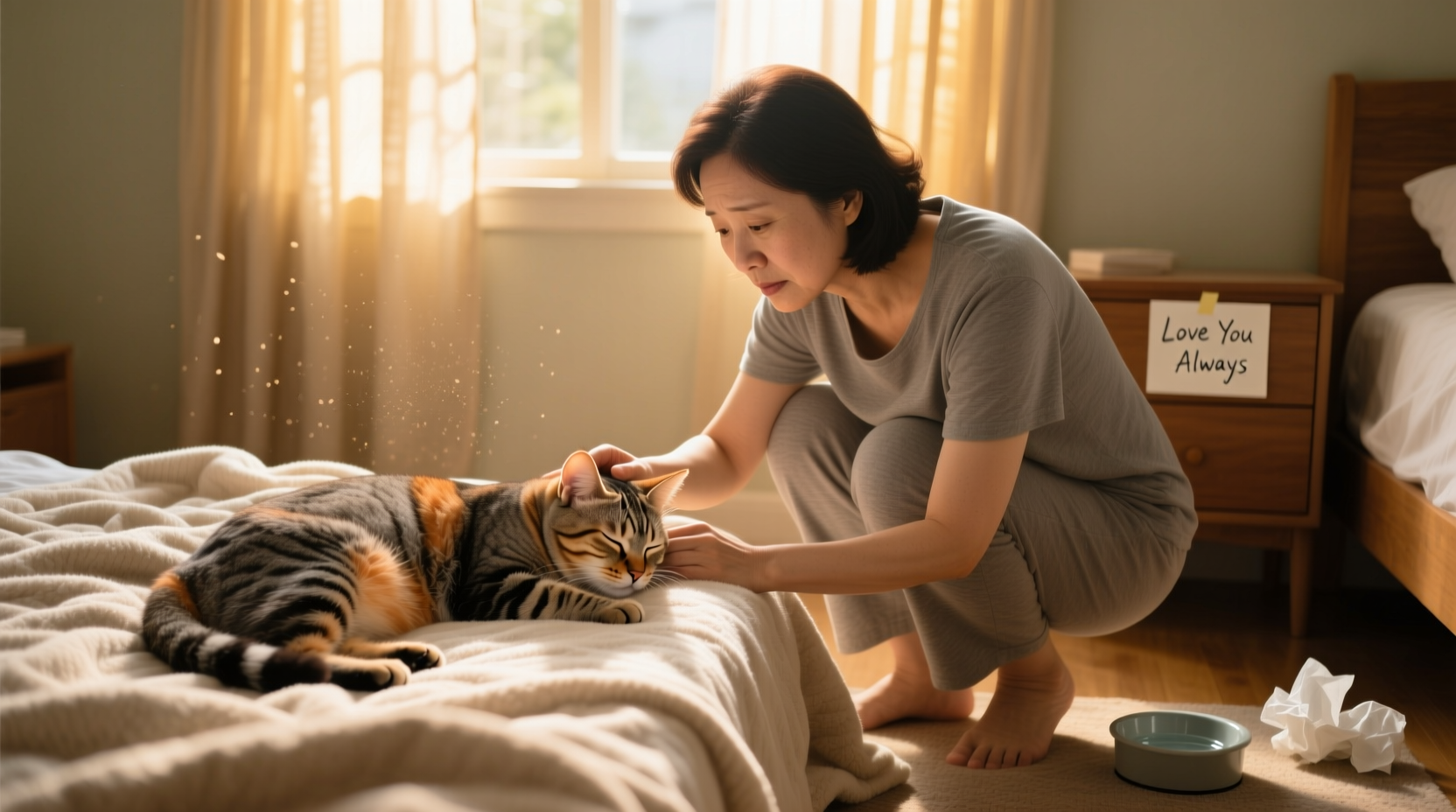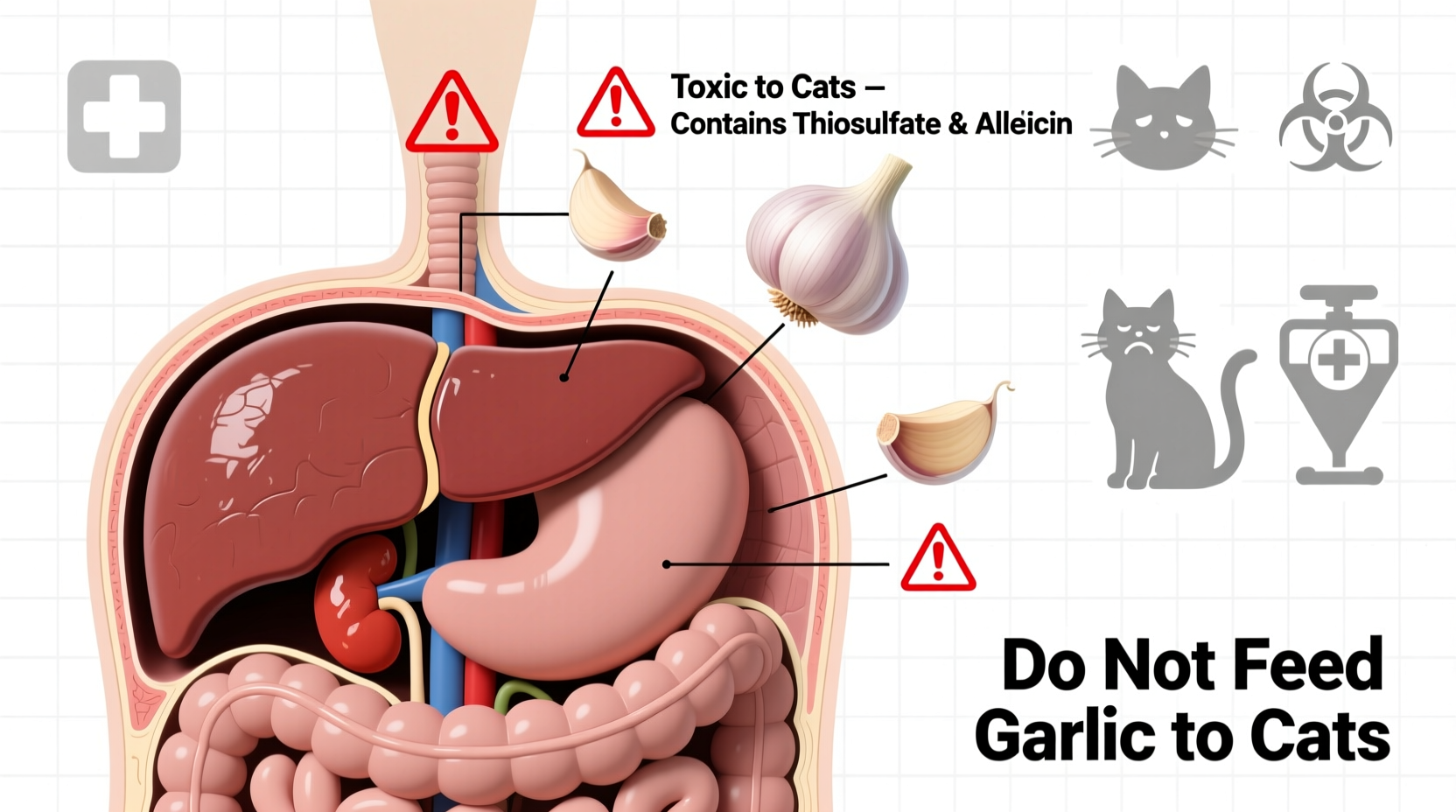As a cat owner, you might wonder whether sharing your flavorful meals with your feline friend is safe. The truth about garlic and cats is alarming but essential knowledge for pet safety. This comprehensive guide delivers critical information every cat owner needs to prevent accidental poisoning and recognize early warning signs.
Why Garlic Poses a Deadly Threat to Cats
Garlic belongs to the Allium family, which includes onions, leeks, and chives—all toxic to cats. The dangerous compound allyl propyl disulfide causes oxidative damage to red blood cells, leading to hemolytic anemia. Unlike humans, cats lack sufficient glutathione, the enzyme needed to process these harmful compounds.
| Allium Type | Toxic Dose for Cats | Common Exposure Sources |
|---|---|---|
| Garlic (fresh/cloves) | 15-30g per kg body weight | Human food scraps, homemade pet food |
| Garlic powder | 5x more concentrated than fresh | Seasoned meats, broths, supplements |
| Cooked garlic | Remains equally toxic | Leftovers, shared meals |
Symptoms of Garlic Poisoning in Cats: What to Watch For
Garlic toxicity symptoms often appear 24-48 hours after ingestion but can take up to 5 days to manifest. Early recognition saves lives:
- Initial signs: Vomiting, diarrhea, abdominal pain, lethargy
- Advanced toxicity: Dark urine (hemoglobinuria), weakness, collapse
According to the ASPCA Animal Poison Control Center, even one clove of garlic can trigger toxic effects in an average-sized cat. The severity depends on the cat's size, health status, and the amount consumed.
Immediate Actions If Your Cat Eats Garlic
Time is critical when dealing with garlic exposure. Follow these vet-recommended steps:
- Remove remaining garlic from your cat's reach immediately
- Contact your veterinarian or pet poison control (ASPCA: 888-426-4435)
- Do not induce vomiting unless specifically instructed by a professional
- Bring packaging or sample of the ingested material to the vet
Treatment typically involves intravenous fluids, oxygen therapy, and in severe cases, blood transfusions. Early intervention significantly improves recovery chances.

Common Misconceptions About Garlic and Cats
Despite widespread myths, no amount of garlic is safe for cats. Let's debunk dangerous misconceptions:
- "Small amounts are medicinal" - No scientific evidence supports garlic as a dewormer or health booster for cats
- "Cooking removes toxicity" - Heat doesn't neutralize harmful compounds in Allium plants
- "My cat ate it before with no issues" - Toxicity is cumulative; damage builds with repeated exposure
The Cornell University College of Veterinary Medicine confirms that repeated small exposures can cause chronic anemia that goes undetected until severe.
Preventing Garlic Exposure in Your Home
Protect your feline companion with these practical safety measures:
- Store garlic and onions in closed cabinets away from curious paws
- Never add garlic to homemade cat food recipes
- Check pet food labels for garlic or onion derivatives (common in "natural" pet foods)
- Inform all household members about the dangers of sharing human food
- Use pet-safe alternatives like catnip or valerian root for flavor enrichment
Safe Flavor Alternatives for Cats
While garlic is strictly off-limits, these cat-safe options can enhance your pet's meals:
- Cat grass: Provides natural digestive benefits
- Freeze-dried meat: Adds protein-rich flavor without risk
- Nutritional yeast: Offers savory taste with B-vitamins (in moderation)
- Low-sodium chicken broth: Use plain varieties without onion/garlic
Always introduce new foods gradually and consult your veterinarian before making dietary changes, especially for cats with health conditions.
When to Seek Emergency Veterinary Care
Don't wait for symptoms to worsen. Contact your vet immediately if:
- Your cat consumed any amount of garlic or onion-family plants
- You notice unexplained weakness or pale gums
- Your cat shows decreased appetite lasting more than 24 hours
- Vomiting or diarrhea persists beyond 12 hours
Remember that cats often hide illness until it's advanced. Early veterinary intervention prevents complications and reduces treatment costs significantly.











 浙公网安备
33010002000092号
浙公网安备
33010002000092号 浙B2-20120091-4
浙B2-20120091-4